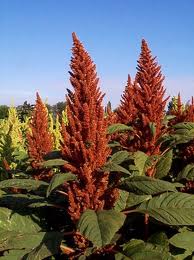Our changing climate is having a dramatic and devastating effect on human agriculture, but it is the very agricultural methods that have contributed towards climate change through its reliance on fossil fuels to drive is huge engines. Here in 2012 the US has suffered from large scale crop failure due to drought conditions caused by our changing climate, their corn and soya bean crops have been hit particularly hard, and what is deeply worrying about US crop failures within a global context is that they supply the world with around 40% of its total food supply. Similarly, in the UK crop failures this year have been high, potatoes have been hit by blight due to the unseasonal weather providing an ideal breeding ground for blight, heavy rainfall in the UK has also led to the failure of much of our tree based fruit crops, and wheat has also suffered. 
Diet diversity in the face of climate change
Modern industrial farming and the corporate ownership and control of food have led us down the path of relying on certain staple crops and foodstuffs too much, imagine if China’s rice suddenly failed, it would be absolutely catastrophic for the huge number of people who rely on rice as their staple, similarly imagine of Canada’s wheat crop also failed, these are not doomsday scenarios there is a strong likelihood of something like this occurring within our time . Highly useful but energy hungry crops such as wheat is largely grown to feed livestock nowadays, if this wheat were made available to people as opposed to cattle factory farmers there would be enough wheat to go around within a changing climate situation. Long term though we need to experiment with different grain crops, such as spelt, amaranth and quinoa to name but a few. 
Future human diet
As I mentioned earlier in this piece our national potato crop has suffered this year due to blight, but there are varieties of potatoes out their that offer some resistance to blight, and there are also other plants that are similar to the potato that are worth growing at home. On our allotment plot this year we trialled Oca, which is a South American plant with edible tubers that resembles a small potato. Oca is completely blight resistant and grow quite well in our climate, despite only planting a couple of tubers the crop from our Oca trial was good enough to warrant growing them on a yearly basis Our diet of the future depends on our actions that we take now, within a present context we need to change what we eat and how we eat. For those who can growing your own food and help your friends and family to do the same. Here we once again look towards Cuba for inspiration when it comes to growing healthy low impact food when there is very little in the way of fossil fuels around, Cuba now boats a very healthy population, and it has done it by bringing people together in the towns and cities to produce cleanly grown organic food.
Steve
